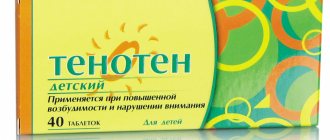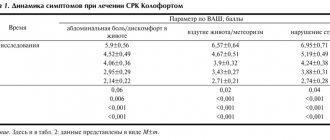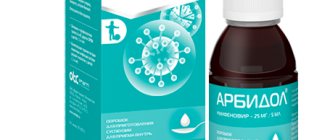Indications for use
Decathylene tablets are effective in combating bacterial and fungal infections of the oral mucosa and throat.
What are the pills for?
The drug is prescribed:
- for sore throat ( lacunar, catarrhal, ulcerative-filmic );
- for gingivitis and stomatitis ; _
- for pharyngitis, laryngitis ;
- for the treatment of candidiasis of the buccopharyngeal cavity ;
- in conditions after removal of teeth and tonsils;
- as a preventive measure during epidemics .
Pharmacological properties of the drug Decathylene
Decathylene has antibacterial, antifungal and anti-inflammatory effects. As a bactericidal and fungistatic agent, dequalinium chloride affects microorganisms that cause mixed infections of the mouth and throat. The spectrum of action of this local chemotherapeutic agent is very wide and includes most gram-positive and gram-negative microorganisms, as well as fungi and spirochetes. Dibucaine hydrochloride has a weak local anesthetic effect, reducing pain during infections of the mouth and throat. There are no known microorganisms resistant to dequalinium chloride. Since Decathylene does not contain sugar, it can be used in patients with diabetes. Does not cause caries development. The main active ingredient is absorbed in small quantities.
Instructions for Decathylene (Method and dosage)
The tablets should be dissolved slowly and thoroughly, not chewed or crushed. Before taking, consult a specialist. If after 5 days there is no relief, tell your doctor.
Take one every 2 hours during the acute period, then every 4 hours. The maximum quantity per day is 10 pieces.
Decathylene, instructions for use for children
For children, at first the interval between doses should be 3 hours, then 4.
Decathylene No. 20 tablet/sol.
Instructions for medical use of the drug DECATYLENE Trade name Decathylene™ International nonproprietary name No Dosage form Lozenges Composition One tablet contains active substances: dequalinium chloride 0.25 mg cinchocaine hydrochloride 0.03 mg, excipients: sorbitol, talc, magnesium stearate, colloidal silicon dioxide, peppermint extract, peppermint oil Description Tablets are round, white, with a flat surface, scored on one side and embossed with the inscription “D” on the other. Pharmacotherapeutic group Drugs for the treatment of throat diseases. Antiseptics. ATC code R02AA20 Pharmacological properties Pharmacokinetics Dequalinium chloride is absorbed in small quantities. Pharmacodynamics Decathylene™ has antiviral, antifungal, anti-inflammatory, hemostatic effects. Dequalinium chloride is effective against gram-negative bacteria: Salmonella typxi, Escherichia coli, Pseudomonas aeruginosa, Proteus vulgaris, Salmonella typhimurium; gram-positive bacteria: Bacillius subtitis, Corynebacteria diphtheriae, Mycobacteria tuberculosis; gram-negative cocci: Neiss. catarrhalis, Neiss. meningitis; gram-positive cocci: Staphylococcus aureaus, Staphylococcus aureaus penicillin-resistens, Streptococcus laecalis, Streptococcus pneumoniae, Streptococcus pyogenes, Streptococcus salivarius; fungal flora: Actinomycis, Candida albicans, Trichophyton mentagrvophytes, Trichophyton rubrium, Trichophyton verrucosum, and Spirochaeta Vinccenri. Cinchocaine hydrochloride has a weak local anesthetic effect, reducing pain during infections of the oral cavity and pharynx. Decathylene™ tablets do not cause local irritation or allergic reactions. Considering that Decathylene™ does not contain sugar, it can be used in patients with diabetes. Indications for use Local treatment of acute inflammatory diseases of the oral cavity and pharynx: - catarrhal tonsillitis and lacunar tonsillitis (as an adjuvant) - ulcerative membranous sore throat of Simanovsky-Plaut-Vincent (as an adjuvant) - pharyngitis, laryngitis, tonsillitis - aphthous-ulcerative stomatitis, gingivitis - candidomycosis of the oral cavity and pharynx (as an adjuvant) - conditions after tonsillectomy, tooth extraction - to eliminate bad breath Method of administration and dosage Adults and children over 12 years of age are prescribed 1 tablet every 2 hours, after symptoms have subsided inflammation - 1 tablet every 4 hours. Children over 4 years of age are prescribed 1 tablet every 3 hours, after symptoms have subsided - 1 tablet every 6 hours. The tablets should be dissolved slowly, not chewed. The maximum daily dose is 10-12 tablets during the acute period of the disease and then 6 tablets until the symptoms of inflammation disappear. The course of treatment depends on the disappearance of the symptoms of inflammation and lasts no more than 5 days. Side effects Sometimes - local hypersensitivity reactions (itching, rash) Contraindications - hypersensitivity to dequalinium chloride, dibucaine hydrochloride or any other component of the drug - known allergic reactions to quaternary ammonium bases (for example, benzalkonium chloride) - children under 4 years of age years Drug interactions The antibacterial effect is reduced when used together with anionic detergents (for example, toothpaste). Interactions with other drugs have not been described. Special instructions Use in pediatrics There is no data on the use of the drug in children under 4 years of age. Pregnancy and lactation No controlled studies have been conducted. Use is possible when the expected effect for the mother exceeds the potential risk for the fetus and child. Peculiarities of influence on the ability to drive a vehicle or potentially dangerous mechanisms No effect Overdose There is no information on cases of overdose. Release form and packaging 10 tablets each in a blister pack made of polyvinyl chloride film and Aclar (2000) and aluminum foil. 2 blister packs together with instructions for medical use in the state and Russian languages are placed in a cardboard pack. Storage conditions Store in a dry place, at a temperature not exceeding +25°C. Keep out of the reach of children! Shelf life: 3 years Do not use after expiration date. Conditions for dispensing from pharmacies Without a prescription Manufacturer Acino Pharma AG, Aesch BL, Switzerland Registration certificate holder Teva Pharmaceutical Industries Limited, Israel Address of the organization that accepts claims from consumers regarding product (product) quality in the territory of the Republic of Kazakhstan: ratiopharm Kazakhstan LLP 050000 Republic of Kazakhstan Almaty, Al-Farabi Avenue 19, Nurly Tau Business Center 1 B, office 603 Telephone, fax; 311-07-34 E-mail
Analogues of Decathylene
Level 4 ATC code matches: Falimint
Suprima-ENT
Ingalipt-N
Grammidin with anesthetic Neo
Grammidin for children
Grammidin with anesthetic
Grammidin Neo
Grammidin
Strepsils Intensive
Strepsils Plus
Strepsils
Ingalipt
TheraFlu LAR
Hexoral Tabs
Lisak
Efizol
Bioparox
Angilex
Kameton
Anzibel
Analogs are: And Ngalipt, Efizol, Trachisan, Proposol .
Special instructions for the use of the drug Decathylene
Use during pregnancy and lactation. No controlled studies have been conducted. The drug can be used during pregnancy and lactation after consultation with a doctor if the therapeutic effect for the mother outweighs the possible risk of impact on the fetus/child. Influence on reaction speed when driving vehicles or working with other mechanisms. No impact studies have been conducted. However, the possibility that the drug has a negative effect on these functions is unlikely. Children. The drug in this dosage form is not prescribed to children under 4 years of age.
Reviews about Decathylene
The medicine not only copes well with the unpleasant symptoms of sore throat, stomatitis and ARVI , but also gets rid of harmful microbes. It has a pleasant taste and is convenient to use. A few days after starting treatment, the patient feels much better.
Reviews of Decathylene say that it is an indispensable remedy after tonsillectomy and tooth extraction; it relieves pain and relieves inflammation. Can be taken by people suffering from diabetes. The only drawback is the high price.
Use of the drug Decathylene
Adults and children over 12 years of age are prescribed 1 tablet every 2 hours, after reducing the symptoms of inflammation - 1 tablet every 4 hours. Children over 4 years of age - 1 tablet every 3 hours, after reducing the symptoms of inflammation - 1 tablet every 4 hours. Tablets should be dissolved slowly without chewing. The maximum daily amount is 10–12 tablets during the acute phase and 6 tablets per day after the inflammatory symptoms disappear. The duration of use in children and adults is the same. It is recommended to take Decathylene until the symptoms of the disease disappear; if symptoms have not disappeared after 5 days of therapy, treatment should be reconsidered after consultation with a doctor.
Decatylene price, where to buy
The price of Decathylene is about 180 rubles for 20 tablets.
- Online pharmacies in RussiaRussia
- Online pharmacies in UkraineUkraine
- Online pharmacies in KazakhstanKazakhstan
LuxPharma* special offer
- Decathylene tab.
for resorption N20 RUR 1,780 order
show more
Pharmacy24
- Decathylene No. 20 tablets Acino Pharma AG, Switzerland/Untersuchungsinstitut Heppeller, Nimechchina/Mefa LLC
89 UAH.order - Decathylene No. 40 tablets Acino Pharma AG, Switzerland/Untersuchungsinstitut Heppeller, Nimecchina
156 UAH order
PaniPharmacy
- Decathylene Decathylene lozenges No. 40 Germany, Acino Pharma
167 UAH order
- Decathylene Decathylene lozenges No. 20 Germany, Acino Pharma
95 UAH order
show more




